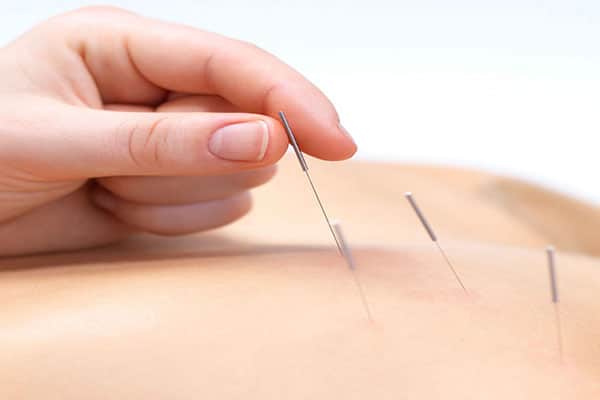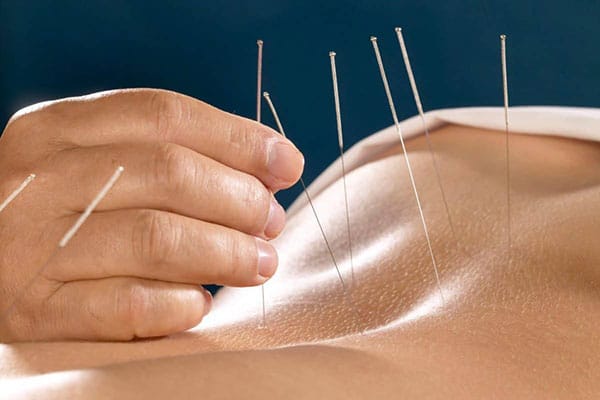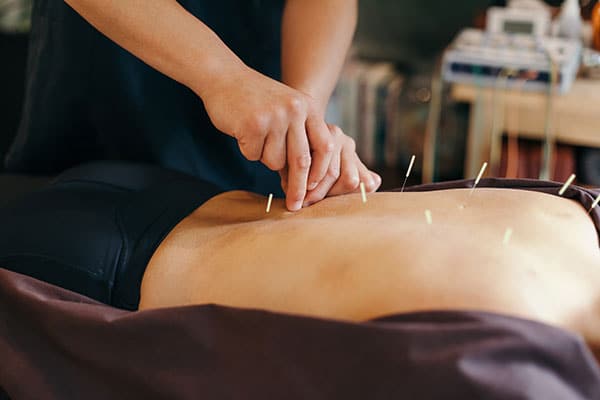New clinical evidence that the needle-based alternative therapy is an effective form of pain relief, has sparked positive discussion about its suitability for medical use. But can it really increase a woman’s chances of conceiving?
“Fertility is certainly one of the issues at our forefront,” says a spokesperson for the British Acupuncturist Council. “Acupuncture can work on a very superfluous level, simply tapping and releasing a person’s energy, or it can work at a deeper level to support the system’s functionality. It can increase the blood flow into the uterus to allow the lining to be thicker and lodge the egg. It can also work on a hormonal level, so that FSH and thyroxin are rebalanced. It all works through the same processes, the same points, the same needles.”
Although the medical community has been reluctant to embrace alternative therapies in the past, there is increasing evidence that acupuncture in particular may be helpful in matters of fertility and childbearing. A recent study by the Gothenburg Institute for the Health of Women and Children found that the practice can reduce the more unpleasant side-effects of pregnancy, including pelvic girdle pain. And in 2002, a team of German researchers claimed that acupuncture can boost IVF success rates by almost 50 per cent. They believe the therapy can affect the auto-nervous system, which is involved in the control of muscles and glands and impacts on the receptiveness of the uterus lining.
At the Wiltshire Acupuncture Practice there have been patients that have benefited from acupuncture suffering from a range of gynaecological problems. Amongst them, those that had given up hope of ever becoming pregnant yet successfully went on to produce healthy babies. It is important to look at a range of imbalances and not those related directly to fertility and this might include sleep quality, regulation of the menstrual cycle, improved digestion, easing of menstrual related symptoms, increased energy and reduced stress.
The first written evidence of acupuncture’s use in the treatment of fertility dates back over two thousand years to 3AD. Zhang Zhong-jing, a famous physician from the Han Dynasty, discussed infertility and a variety of women’s diseases conditions in his text Jin Gui Yao Lue (Essentials of the Golden Cabinet).
In more recent times, Western science has established the following proven benefits that acupuncture offers to reproductive health:
Regulates the menstrual cycle.
Invigorates sperm, enhancing both sperm count and motility.
Strengthens the immune system and enhances general health.
Reduce stress, control anxiety, enhance sleep and increase energy level.
Balances endocrine system, regulates hormones and improves egg quality.
Increases blood flow to the uterus, improving eudiometrical lining implantation. Improves blood flow to the ovaries, increasing ovarian response – more follicles and better egg production.
Lessens the side effects associated with hormonal treatment.
Protects against miscarriage, improving live birth rate.
Increase the chance of pregnancy for women undergoing in-vitro fertilization (IVF).
Those who suffer from functional infertility make excellent candidates for acupuncture. Fertility issues associated with hormonal problems, immune disorders, irregular menstruation, amenorrhoea and age related issues all fall within the category of functional infertility.
Stress has been proven to dramatically decrease fertility for both men and women and consequently acupuncture and Chinese herbal medicine can dramatically increase fertility by reducing stress if this is a prevailing factor.
Oriental Medicine has the phrase “Cultivate the soil before you plant the seed.” This is a cornerstone to Chinese Medicine’s approach to fertility treatment. The optimum time to treat someone is prior to their conception; in other words, both parents should be brought to optimum health prior to conceiving. Chinese Medicine holds the view that this period will determine the health of the sperm and the egg and that optimising both parents health prior to conception delivers maxim constitutional health to the newborn child. For the mother-to-be, treatment also occurs during the pregnancy for this same reason.
When treating the female we focus on the menstrual cycle and aim for cycle regulation and to alleviate any associated pain or discomfort. It is also important look to improve overall health, insuring that sleep is of a high quality, digestion and elimination is strong and regular and that there is an overall sense of increased well-being. This is achieved by a combination of acupuncture as well as dietary, exercise and lifestyle advice.
It is most favourable to treat weekly for at least 3 months to properly regulate the menstrual cycle, balance hormone activity and to optimise egg quality. As women’s follicles are recruited over a 3 to 5 month time period before ovulation ongoing treatment allows adequate time during the preconception phase to “nurture nature”. After this 3-month phase it would be best to generally continue treatment twice monthly unless conception has already taken place.
It is however surprising how many clients become pregnant very soon after commencing treatment. The process of trying to conceive is in itself very stressful for many couples and the patient’s active involvement in the whole treatment process delivers a greater sense of control, which had previously seemed unattainable.






